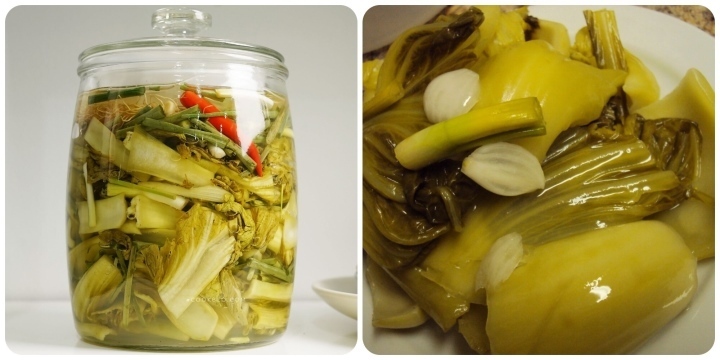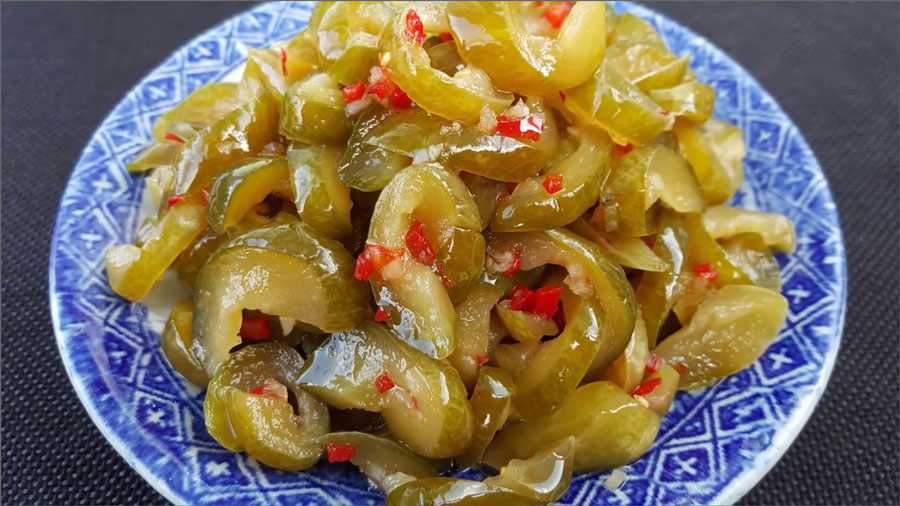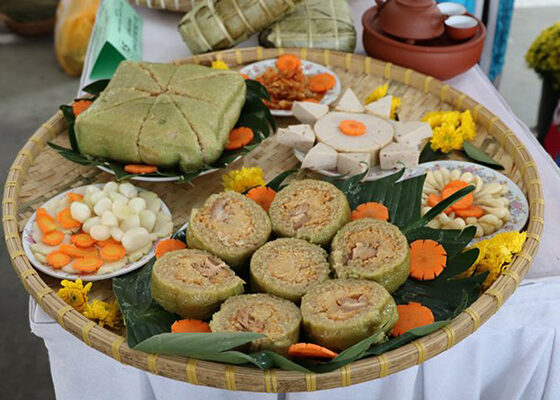Table of Contents Show
Fermented foods are a cornerstone of Vietnamese cuisine, celebrated not just for their distinctive flavors but also for their numerous health benefits of fermented foods. These ancient culinary practices, deeply rooted in Vietnam’s rich agricultural traditions and diverse natural resources, enhance dishes while offering a plethora of nutritional advantages that contribute to overall well-being.
In Vietnam, fermented foods are integral to our culture, playing a vital role in household practices and family gatherings. Understanding their advantages can enrich our appreciation of these traditional treasures and highlight the profound health benefits of fermented foods.
Read more interesting posts here:
- Thit Kho Tau: The Delicious Vietnamese Braised Pork Delight
- Hen Xuc Banh Trang: The Flavorful Clam and Rice Paper Delight
- Banh Can: The Irresistible Vietnamese Mini Rice Pancakes
Probiotics: The gut health champions and health benefits of fermented foods

One of the most significant advantages of fermented foods is their richness in probiotics, beneficial bacteria that play a crucial role in gut health. This is a primary aspect of the health benefits of fermented foods. In Vietnamese cuisine, items like nước mắm (fish sauce), crafted from the bountiful fish along our extensive coastline, and dưa chua (pickled vegetables), made from a variety of fresh produce grown in our lush rice paddies and gardens, are not just flavor enhancers; they are sources of probiotics that support a balanced gut microbiome.
A healthy gut is essential for efficient digestion, nutrient absorption, and overall health. Incorporating these fermented foods into our diets can help alleviate issues such as bloating and indigestion, showcasing the tangible health benefits of fermented foods.
Enhanced nutrient absorption through health benefits of fermented foods

Fermentation improves the bioavailability of nutrients, breaking down antinutrients, compounds that can inhibit the absorption of minerals, in grains and legumes. For example, preparing traditional dishes like bánh xèo (savory pancakes) with fermented rice flour, sourced from the fertile lands of the Red River and Mekong Delta, enhances the absorption of essential minerals like iron, zinc, and calcium. This means that not only are we enjoying delicious meals, but we are also maximizing our nutrient intake, which is vital for maintaining good health and truly represents one of the key health benefits of fermented foods.
Immune system support as a health benefit of fermented foods

The health of our gut is closely linked to our immune function, and the probiotics found in fermented foods can bolster our immune system. Regular consumption of these foods promotes the production of antibodies and enhances the activity of immune cells, helping the body fend off infections.
In Vietnam, especially during the rainy season, we often consume fermented foods to strengthen our defenses, reflecting a deep cultural wisdom passed down through generations. These practices are particularly important in rural areas, where traditional diets remain rich in fermented delicacies, highlighting the immune-boosting health benefits of fermented foods.
Improved digestion and lactose tolerance: health benefits of fermented foods

For many Vietnamese people, dairy products can be a source of discomfort due to lactose intolerance. However, fermented dairy products like yogurt and sữa chua (Vietnamese yogurt) are often better tolerated because the fermentation process reduces lactose levels. The enzymes produced during fermentation aid in breaking down food more efficiently, enhancing digestion for everyone. In many households, making yogurt at home is a cherished tradition, often involving the entire family in the process. This not only reinforces family bonds but also highlights the importance of community in our culinary practices, showcasing additional health benefits of fermented foods.
Mental health benefits from fermented foods

Emerging research indicates a fascinating link between gut health and mental well-being, often referred to as the “gut-brain axis.” Probiotics may influence the production of neurotransmitters, such as serotonin, which is essential for mood regulation. By incorporating fermented foods into our diets, we may support not only our physical health but also our mental resilience.
In a culture that values family and community, the act of sharing meals that include fermented foods can enhance emotional well-being. Family gatherings, rich with traditional dishes, create a space for laughter, stories, and connection, fostering emotional health and emphasizing the broader health benefits of fermented foods.
Anti-inflammatory properties of fermented foods

Chronic inflammation is a root cause of many health issues, including heart disease and diabetes. Many fermented foods contain compounds with anti-inflammatory effects, helping to reduce inflammation in the body.
Traditional Vietnamese dishes often feature ingredients like turmeric and ginger, both essential to our cooking known for their anti-inflammatory properties. This knowledge is ingrained in household practices, where families prioritize health and wellness through their culinary choices, utilizing the diverse spices and herbs that thrive in Vietnam’s climate, further underscoring the health benefits of fermented foods.
Weight management and heart health through fermented foods

Consuming fermented foods may aid in weight management, as some studies suggest that probiotics can help regulate appetite and fat storage. Moreover, fermented soy products, such as tempeh, are linked to improved heart health by helping to lower cholesterol levels. Integrating these foods into our diet can lead to healthier lifestyle choices and better long-term health outcomes. In Vietnamese households, the emphasis on fresh, fermented foods reflects a commitment to health, sustainability, and community well-being, making the most of the country’s agricultural wealth and illustrating the versatile health benefits of fermented foods.
Conclusion
The health benefits of fermented foods in Vietnamese cuisine are extensive and multifaceted. From promoting gut health to enhancing nutrient absorption and supporting mental well-being, these foods offer a wealth of advantages that contribute to a balanced diet. They serve not only as a bridge between tradition and modern health practices but also reinforce the deep cultural significance of family and community in our culinary experiences.
By embracing the rich tradition of fermentation in our cooking, we honor our culinary heritage, shaped by Vietnam’s diverse terrain and agricultural bounty, and invest in our health. As we continue to explore and celebrate these fermented delights, we enrich both our plates and our lives.
Join our community of explorers in the ExoTrails Facebook Group and follow the ExoTrails Fanpage for daily inspiration and trail tips!
FAQs
What are the health benefits of eating fermented foods?
Eating fermented foods can improve gut health, enhance nutrient absorption, support the immune system, aid digestion, potentially boost mental well-being, and provide anti-inflammatory and heart-healthy properties.
What are some examples of fermented foods in Vietnam?
Common examples of fermented foods in Vietnam include nước mắm (fish sauce), dưa chua (pickled vegetables), nem chua (fermented pork), and various types of fermented tofu and rice products like bánh xèo flour.
Is fish sauce (nước mắm) good for your gut?
Traditional nước mắm, made through a long fermentation process, contains beneficial probiotics that can contribute to a healthy gut microbiome and aid digestion.
How do probiotics support the immune system?
Probiotics in fermented foods help support the immune system by promoting the production of antibodies and enhancing the activity of immune cells, helping the body defend against infections.
Why is gut health important for mental health?
Gut health is important for mental health due to the “gut-brain axis”; a balanced gut microbiome can influence the production of neurotransmitters like serotonin, which plays a key role in mood regulation.












